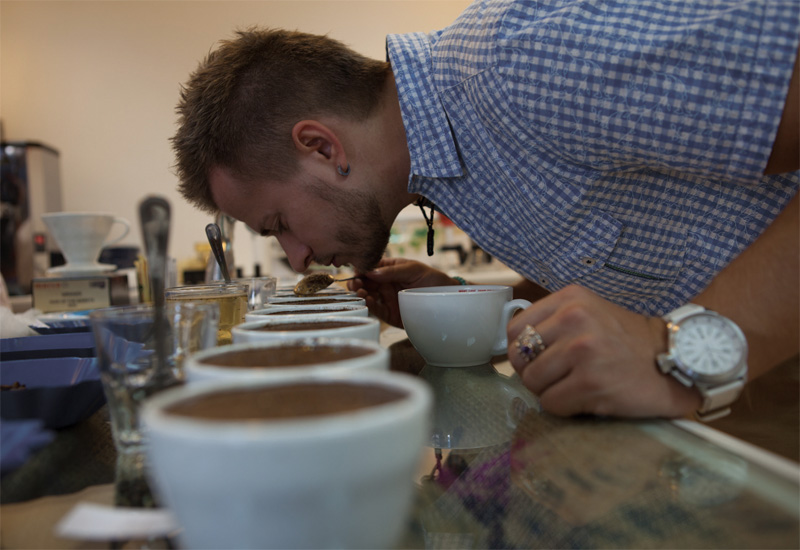Pouring the perfect cup
But training issues are not limited to hotel coffee lounges says Gautam Kumbargeri Srinath, Marco Dubai’s sales manager.
“Baristas are generally not coffee drinkers, so they are unable to recognise the difference from one cup to another. Also the market is short of barista trainers and is flooded with chain cafes rather than individual coffee cafes/mom & pop cafes where they give more importance to coffee quality and preparation of the perfect cup.”
La Marquise’s Darya Yurkina, adds that high turnover of employees in this sector “affects the quality of the served coffee immensely and causes inconsistency both in the cup result and service.”

| Advertisement |
Suppliers including Coffee Planet and RAW have worked to develop a number of intensive training programmes. Melitta offers technical training sessions at its international training centre in Minden/Germany as well as placing technical trainers in UAE, Oman and Qatar to support its customers locally.
Eric Hughes, general manager, Costa Coffee, Metropolitan adds that the rigorous training campaigns are crucial. As well as staff learning “grinding, tamping, extracting, frothing, pouring and, most importantly, tasting” to become approved baristas, the company incentivises staff through in-house competitions both at a local level, then a worldwide level to gauge ability on an international scale.
“It’s pretty hard work, but it’s worth it and it’s necessary to serve our customers with the perfect cup,” says Hughes.
But Godinho says training is not the isssue. It’s the follow up: “The professional training imparted to this vocational trade should go beyond working behind the counter. It should address and follow up on staff attitude, product knowledge and attention to detail along with their customer service skills when dealing with new and returning customers.”
Dharman agrees: “Initial trainings as we have seen are done by professionals flown in from abroad by the coffee suppliers. There are enough suppliers in the market but the repetitions of these trainings are very limited.”
Maturing
In comparison to the rest of the world, Toogood believes Dubai itself is about five years behind when it comes to maturity of the coffee market. He says it is accelerating fast as consumers get to know there are other options and seek out quality.
Godinho agrees that while franchises currently dominate by “securing multiple and strategic locations” making it more challenging for independents to set up and succeed, the market is on the lookout for niche concepts.
But that challenge works both ways, believes Hughes: “The UAE audience is very sophisticated, cosmopolitan and well-travelled and as a consequence is demanding and trend-driven. This means at Costa we always need to anticipate and respond to the new and the next, and innovate both our product and service offerings while retaining the commitment to quality, flavour and service.”
Article continues on next page ...









 Search our database of more than 2,700 industry companies
Search our database of more than 2,700 industry companies









